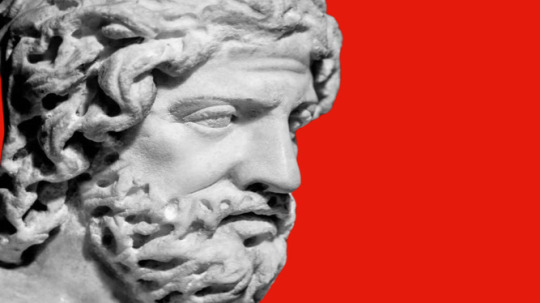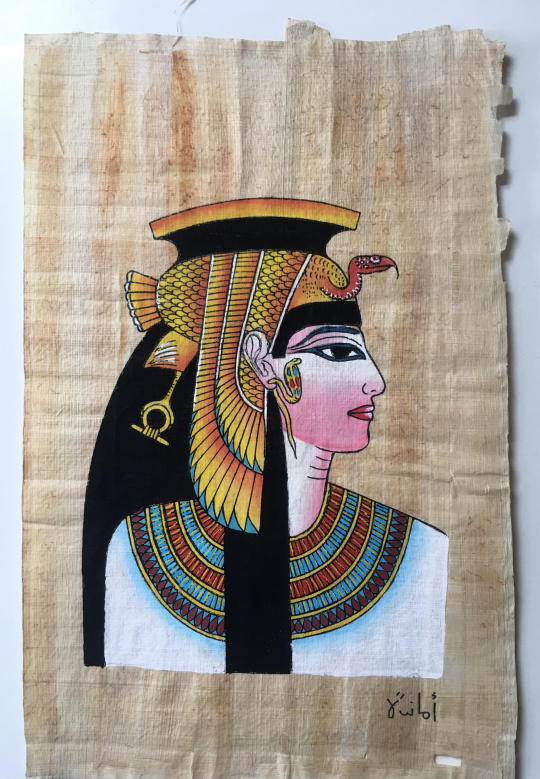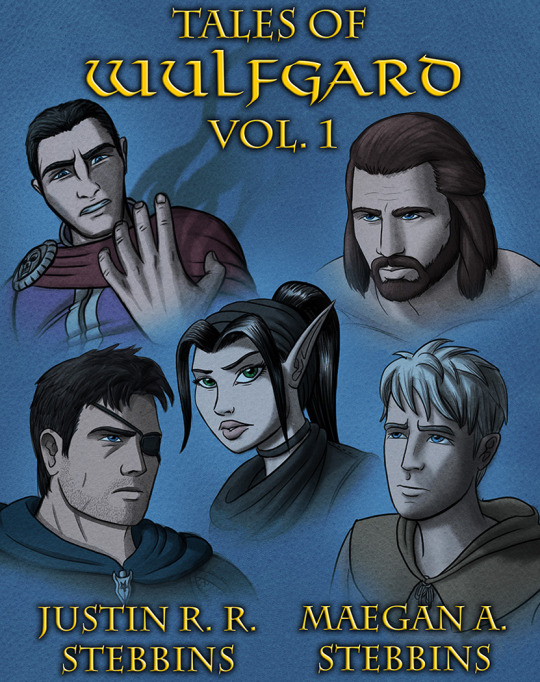#plutarchus
Explore tagged Tumblr posts
Text

The mind is not a vessel to be filled but a fire to be kindled.
心は満たされるべき容器ではなく、燃え上がるべき炎である。
Plutarchus プルタルコス
105 notes
·
View notes
Text

«Cuando los griegos se reunieron en el Istmo y votaron ir de campaña contra los persas en compañía de Alejandro, éste fue proclamado comandante en jefe. Como muchos hombres políticos y filósofos se acercaban a él para felicitarle, confiaba Alejandro en que Diógenes de Sinope, que se encontraba a la sazón en Corinto, haría lo propio. Pero como aquél no se preocupaba lo más mínimo de Alejandro y pasaba el rato en el Cráneo, fue él en persona a visitarle, encontrándole tumbado al sol. Diógenes se incorporó un poco ante tal avalancha de hombres como venía hacia él y se quedó mirando a Alejandro; éste le saludó y le preguntó si acaso tenía necesidad de alguna cosa. “Que te me apartes un poco del sol”, dijo. Dícese que ante tal respuesta y muestras de desdén, Alejandro quedó tan admirado de la altivez y grandeza de este hombre que, cuando ya de vuelta, los suyos se reían y mofaban del filósofo, dijo: “Pues por lo que a mí hace, si no fuese Alejandro, de buena gana sería Diógenes”.»
Plutarco: Vidas parelelas, VI. Editorial Gredos, pág. 41. Madrid, 2007.
TGO
@bocadosdefilosofia
@dias-de-la-ira-1
#plutarco#Πλούταρχος#plútarjos#plutarchus#plutarco de queronea#vidas paralelas#alejandro magno#alejandro#diógenes de sinope#diógenes el perro#diógenes el cínico#diógenes#cinismo#filosofía cínica#cínico#cínicos#filosofía helenística#poder#orgullo#época antigua#teo gómez otero#gaetano gandolfi#alejandro y diógenes
2 notes
·
View notes
Text
Plutarchus – Vitae prallelae, «Vita Alexandri», I, 2-3
Οὔτε γὰρ ἱστορίας γράφομεν, ἀλλὰ βίους, οὔτε ταῖς ἐπιφανεστάταις πράξεσι πάντως ἔνεστι δήλωσις ἀρετῆς ἢ κακίας, ἀλλὰ πρᾶγμα βραχὺ πολλάκις
καὶ ῥῆμα καὶ παιδιά τις ἔμφασιν ἤθους ἐποίησε μᾶλλον ἢ μάχαι μυριόνεκροι καὶ παρατάξεις αἱ μέγισται καὶ πολιορκίαι πόλεων. Ὥσπερ οὖν οἱ ζῳγράφοι τὰς ὁμοιότητας ἀπὸ τοῦ προσώπου καὶ τῶν περὶ τὴν ὄψιν εἰδῶν οἷς ἐμφαίνεται τὸ ἦθος ἀναλαμβάνουσιν, ἐλάχιστα τῶν λοιπῶν μερῶν φροντίζοντες, οὕτως ἡμῖν δοτέον εἰς τὰ τῆς ψυχῆς σημεῖα μᾶλλον ἐνδύεσθαι, καὶ διὰ τούτων εἰδοποιεῖν τὸν ἑκάστου βίον, ἐάσαντας ἑτέροις τὰ μεγέθη καὶ τοὺς ἀγῶνας.
[LAT] Non enim historias, sed vitas scribimus; neque semper clarissimis factis virtutis aut vitii insunt indicia, quia immo saepe exigua quaedam res dictumve aut iocus plus de ingenio alicuius documenti praebet, quam immensa hostium strages edita, maximae pugnae, urbiumve oppugnationes. Itaque sicuti pictores vultu et habitu externo faciei ex quibus potissimum natura hominis apparet similitudines exprimunt, minima reliquarum partium habita ratione; ita nobis quoque concedendum est, ut signa animi colligentes, iis vitam uniuscuiusque depingamus, aliis magnitudinem factorum et certamina relinquentes.
[HIS] No escribimos historias, sino vidas; no es en las acciones más ruidosas donde se manifiestan la virtud o el vicio, sino que muchas veces una situación pasajera, un dicho o una niñería sirven más para declarar un carácter que batallas en que mueren millares de hombres, numerosos ejércitos y sitios de ciudades. Por tanto, de la manera como los pintores toman para retratar las semejanzas del rostro y aquella expresión de ojos en que más se manifiestan la índole y el carácter cuidándose poco de todo lo demás, así debe a nosotros concedérsenos que atendamos más a los indicios del ánimo y que por ello dibujemos la vida de cada uno dejando a otros los hechos de gran apariencia y los combates.
#Plutarchus#Πλούταρχος#Vitae parallelae#Vita Alexandri#Βίοι Παράλληλοι#Αλεξανδρος και Καισαρ#saec. I#saec. II#95#120#scriptum#historia#Graece#Alexander Magnus#Caesar#Iulius Caesar#Xylander#Ambroise Firmin-Didot
1 note
·
View note
Text
POV you're trying to translate from Latin

but all you see is

3 notes
·
View notes
Text
The Getulian Dog [miscellaneous]

In the mid-17th century, Edward Topsell published a treatise on the animal kingdom in which he described many creatures: both real animals and some fictional beings that got mixed up in his research. And some whose existence is not entirely clear: one of these is the Getulian dog, also called the ‘mimick dog’, a curious canine breed with a remarkable talent for imitating everything it sees.
He classified this dog as Canis lucernarius (which, in modern biological terminology, would make it a species closely related to wolves and not a breed of dog). They have a black head resembling that of a hedgehog and the intelligence of an ape. Their legs are particularly long and support a somewhat short, curved body with a short tail and shaggy fur. Curiously, at least some of these dogs were supposedly raised by apes.
The name ‘Getulian dog’ would imply that these animals hailed from Getulia in northern Africa, but it's unclear whether these stories are fiction or just exaggerated tales of a real dog breed. In the 3rd century B.C., these animals were popular in Egypt, where people trained them to perform tricks. They were so smart that people who could not afford human servants would often train Getulian dogs to perform household tasks.
As they are highly intelligent, these dogs have supposedly been used in theatre and plays since ancient times. According to the ancient historian Plutarchus, one of these trained dogs performed in a public spectacle attended by the emperor Vespasianus (so in the first century A.D.). In the play, a character murdered the dog by feeding him a piece of poisoned bread, and the dog perfectly played the part by pretending to stumble down and die. After this scene the dog stood back up, alive and unharmed, to the joy and amazement of the audience.
As a closing statement, I like this story because most of the myths and tales I read are about man-eating monsters and vengeful deities. But this story is just ‘this one dog was trained for a theatre play and he was really good at it!’
Source: Topsell, E., 1658, the History of Four-footed Beasts, Serpents, and Insects. Describing at large their true and lively figure, their several names, conditions, kinds, virtues (both Natural and Medicinal), countries of their breed, their love and hatred to mankind, and the wonderful work of God in their creation, preservation and destruction., printed by E. Cotes, London, p.127-128, 1098 pp. (image source: Edward Topsell, History of Four-footed beasts, 1658)
77 notes
·
View notes
Note
this may be an odd question, but why does the English language shorten Plutarchos to Plutarch? is it a Latin thing? did the English speakers invent it because it's shorter? in my native language we call him Plutarchos and I always get crap for saying Plutarch
First, most all Greek names were "Latinized." These are the versions most people in Anglophone and Latin-based language countries recognize.
But in Anglophone countries, some names were further Anglicized:
Plutarkhos = Plutarchus = Plutarch
Ptolemaios = Ptolemaeus = Ptolemy
Philippos = Philippus = Philip (etc.)
I will often maintain the /ch/ for the Greek chi, but it really should be rendered /kh/, which is what I used in the novels, actually. There, I tried to be as Greek as I could get, but the /ch/ is somewhat more common.
(I'm guessing your native language might be German/Germanic? German authors are much more likely to preserve the Greek transliterations.)
More Hellenists these days have moved towards Greek transliterations, but because we usually come to them after reading Latinizations for years, we can make mistakes: Aristobulos instead of Aristoboulos, for instance. Sometimes I have to grab my handy Woodhouse to double-check the actual *Greek* spelling. Fortunately, these days, Wikipedia gives the Greek too. Saves some time, but Woodhouse's English-Greek Dictionary is the Old Standby!
#asks#Greek spellings vs Latin spellings vs Anglicized spellings#Greek transliteration vs Latinizing#Classics
13 notes
·
View notes
Note
Diversity win: Marcus Plutarchus only has two names even though he's a Roman man.
Lol.
3 notes
·
View notes
Text
A Journey of Discovery: Reflections on Marketing Seminar Series
"The mind is not a vessel to be filled, but a fire to be kindled." -- L. Mestrius Plutarchus
As I reflect on my recent journey of attending the Marketing Seminar Series, I find myself filled with a sense of newfound inspiration and clarity. The series, comprising sessions led by seasoned and successful professionals in various niches of the marketing landscape, has not only broadened my understanding of contemporary marketing strategies but has also ignited a spark of creativity and ambition within me, guiding me on my career path.
Among the speakers, Fanny Ngantcheu's journey from finance to entrepreneurship in the fashion industry left a lasting impression on me. Fanny's dedication to crafting exceptional customer experiences and prioritizing long-term relationships over short-term gains resonated deeply with me. Her courage in severing unsustainable partnerships and her commitment to empathy-driven interactions underscored the values I hold dear in my own career aspirations.
Lessons From the Greats As I look back on this Marketing Seminar Series, the most important lesson I've learned is the need for adaptability, continuous learning, and versatility in navigating the complexities of the marketing industry. Each speaker contributed a piece to the puzzle of modern marketing strategies, urging me to integrate their insights into my own professional journey. The industry is evolving rapidly, and staying updated with emerging trends, honing analytical skills, and fostering genuine connections with clients are crucial elements for success. The series has not only equipped me with practical knowledge but has also instilled in me a sense of curiosity, resilience, and a drive to innovate in my marketing endeavors.
In summary, the Marketing Seminar Series has been a transformative journey filled with valuable lessons, inspiring mentors, and new perspectives. I am grateful for the opportunity to learn from industry experts and am excited to apply these insights to carve out a meaningful and impactful career in marketing.
Network and Resources
"Networking is marketing. Marketing yourself, your uniqueness, what you stand for." -- Christine Comaford-Lynch
Networking is a vital pathway to cultivating lasting relationships that pave the way for career advancement and personal or professional growth. Since arriving in Canada six months ago, I have been dedicated to expanding my networks through various avenues with diverse individuals, recognizing the significance of a robust network in achieving success and career development in Canada.
Participating in the Strategic Relationship Program at George Brown College has allowed me to connect with a wide range of individuals worldwide, including classmates and professors, each bringing unique expertise to the table. Additionally, I've actively engaged in networking activities such as career fairs and seminars, where I've connected with professionals from different industries, exchanged contact information like emails and phone numbers, and gained insights into market trends and the Canadian work landscape through meaningful conversations.
Exploring resources such as GBCarreers, career fairs, and job-seeking platforms like LinkedIn and Indeed has been pivotal in identifying job opportunities and submitting applications. These platforms have not only provided access to job listings but have also facilitated networking opportunities with potential employers and industry peers.
While I am still in search of a co-op position, networking has played a pivotal role in securing interview opportunities and receiving follow-ups from attending career fairs. These networking efforts continue to positively impact my job search journey and contribute to my overall career growth in marketing. Moreover, I maintain active engagement with my network on LinkedIn by following up, sharing industry insights, and nurturing professional relationships. This ongoing communication strategy is instrumental in staying connected with potential job opportunities and staying abreast of industry developments, ultimately aiding in my quest for a permanent job in marketing upon completing this program.
Takeaways and Tips:
Throughout my networking journey, I've picked up several valuable tips and best practices that I believe can benefit others seeking to build meaningful professional connections. Here are some insights I'd like to share:
Be Genuine and Authentic: Authenticity is key in networking. One should be genuine in their interactions and strive to build authentic relationships based on mutual respect and trust.
Follow Up and Stay Engaged: After initial networking interactions, always follow up with a personalized message or email. Showing gratitude for the conversation and finding ways to stay engaged are the keys to long-term relationships. One should utilize online platforms like LinkedIn to keep in contact with the network, such as sharing relevant articles and thoughts, or just by direct messaging.
Utilize Online Platforms Effectively: Leverage professional networking platforms like LinkedIn to expand your network, showcase your skills and achievements, and participate in industry discussions. Maintaining an active and professional online presence can help to stay engaged with the contacts.
Attend Networking Events and Workshops: Networking events, workshops, and industry conferences provide valuable opportunities to meet new contacts, gain industry insights, and stay updated with trends.
Networking is indeed a challenging endeavor that demands dedication, effort, and resources. However, it stands as a cornerstone of career development and success. By adhering to effective networking tips and best practices, I firmly believe that anyone can construct a robust and supportive professional network. Such a network not only unlocks doors to new opportunities but also nurtures career growth and contributes significantly to overall success in the industry.
1 note
·
View note
Text
Ababa Abaris Abel Abelus Abrahamus Abundantius Acanthio Achillas Acropolistis Adam Adamus Adelardus Adelphasium Ademarus Adephonsus Adhelina Adimantus Adolphus Adriana Adrianus Aegidius Aethalides Aethalos Agathon Agnes Agorastocles Alanus Alaricus Albanus Albertus Albinus Albiorix Alcesimarchus Alcesimus Alco Alexis Alexius Alfredus Alienor Alienora Amadea Amadeus Amalec Amaryllis Ampelisca Andreas Andria Angela Angelus Anna Anselmus Antamoenides Anterastilis Antiochus Antipho Antoninus Apollonius Appendix Aquila Archimedes Argyrippus Ariadna Ariadne Arion Aristobulus Aristophanes Aristophontes Aristoteles Arius Artamo Artemona Arthurus Asa Aspasius Astaphium Augustina Aurelianus Aurelio Aurelius Aureolus Autlesbis Auxilium B Bacchis Baebio Balduinus Ballio Barlaam Bathuel Beata Beatrix Belisarius Benedictus Beniaminus Berengarius Bernardus Bissula Blaedarus Blepharo Branimerus Branimirus Brannimerus Brenamir Bromia Bruno Budimerus Budimiro C Cacistus Cainus Calidorus Callicles Callidamates Callipho Candidus Cappadox Cario Carolus Casimirus Casina Chalinus Cham Chamus Charinus Charmides Christophorus Chrysalus Chrysides Chrysippus Citrio Citro Clarissa Cleareta
Cleomachus Cleopater Cleostrata Collybiscus Cresimirus Crocotium Cunimundus Curculio Curmisagius Cyamus Cylindrus Cynthia Cynthius D Daedalus Daemones Debora Decebalus Delphium Demaenetus Demaratus Demetrius Demipho Demiphones Didacus Dinia Diniarchus Diodorus Dionysia Dionysius Dirsisclaus Diudituslaus Dobrosclavus Domagous Dommagous Domogous Dordalus Dorippa Draccius E Ecbertus Edom Edwardus Egeria Egerius Eleusium Elianor Elianora Eliezer Eligius English Epidicus Epignomus Erasmus Ergasilus Ericus Erotium Esaus Ethelredus Etleva Euclio Eugenius Euhodia Eunomia Eupator Eurydice Eutychus F Feliciana Felicianus Felicitas Ferdinandus Fides Firminus forms Francisca Franciscus Friderica Fridericus G Gaisericus Galileus Gallicles Gamaliel Gaudentius Geisericus Gelasimus Gelasius Gelimer Gensericus Gentius Georgius Gerbertus Gerlachus Gervasius Giddenis Gildasius Gisgo given Godefridus Gorgines Goyslauus Griffinus Gripus Grumio Gualterius Gulielmus Gundulfus Gustavus Gymnasium H Hadrianus Halisca Hamilcar Hanno Harpax Hasdrubal Hegio Helionordis Hellas Henricus Hermes Hesychius Hieronymus Hippocrates Hippolytus Hircanus Hugo Humbertus Hyroeades I Iacobus Iamblichus Ianuarius Iaphet Iaphetus Ignatius Ioannes Iordanes Iosepha Iosephus Iosue Isidora Isidorus Iulia Iustinianus Iustinus J Jeremias Juntinus K Karolus L Labanus Labrax Ladasclavus Lampadio Latin Laurentius Leaena Lemniselenis Lena Leonardus Leonida Lesbonicus Levi Lia Linus Lisia Ludovicus Lyco Lyconides Lycus Lydia Lydus Lysidamus Lysimachus Lystiteles M Maglocunus Manasses Marcion Maria Martina Martinus Mattathias Matthaeus Megadorus Megaronides Melaenis Mellita Menaechmus Messenio Meto Michael Milphidippa Milphio Misargyrides Mnesilochus Moderatus Modesta Modestus Muntimerus Myrrhina Mys N Naim names Neapolio Nechos Nicander Nicanor Nicobulus Nicodemus Nicolaus Noemus O of Olaus Olympio Orontes Orontianus Orontius P Paegnium Palaestra Palinurus Panaetius Panegyris Paphnutius Pardalisca Paris Pasicompsa Patricius Paula Pellio Peniculus Periphanes Perseus Petra Petronella Petrus Phaedria Phaedromus Phanostrata Philadelphus Philaenium Philematium Philippa Philippus Philocrates Philoctetes Philolaches Philomela Philomelus Philopolemus Philoxenus Philto Photinus Phronesium Phygia Pistoclerus Pius Planesium Plesidippus Pleusicles Plutarchus Polybius Polybus Polycarpus Polycletus Polyclitus Polyphemos
Polyphemus Pompilla Pompillus Pomptilla Pompylus Posidonius Pribislavus Procopius Pseudolus Ptolemaeus Ptolemocratia Putiphar Q Quartilla Quintinus R Rachel Radosclavus Radoslavus Raphael Rebecca Renartus Renatus Rhescuporis Roberta Robertus Rodericus Rogerius Roletus Romanus Ruben S Sagaristio Saladinus Salvillus Salvinus Sangarinus Sara Saturio Scapha Sceledrus Sceparnio Scorylo Selenium Sem Semus Sergius Severinus Simo Simon Socration Sophocles Sophoclidisca Sosicles Soteris Sparax Spartacus Sphaerio Stadius Stalagmus Staphyla Stasimus Stephana Stephanium Stephanus Stratippocles Stratophanes Strobilus Sulpicio Syncerastus Syra T Tanais Tanaquil Tancorix Tedusia Tedusius Telestis Terpimerus Testilus Themistius Theodericus Theodora Theodorus Theodosia Theodosius Theopropides Therapontigonus Thestilus Thestylis Thestylus Thomas Tiberius Tlepolemus Tobias Toxilus Trachalio Tranio Triphon Truculentus Turbalio Tycho Tyndarus U Urbanus Ursula V Veronica Vesclevesis Vidus Vincentius Virgo Vitalis Vladimirus Vortigernus Vuissasclavus W Wilielmus Wissisclaus Woiiomyr Y Ysengrimus Z Zeno Zenobius Zenodorus Zenon Zenonina Zenothemis Zoilus
1 note
·
View note
Text
Plutarch: c.46-c.120 BC. :
“The city is but an organized sum total of households, and has public vigor only as its citizens prosper in their private lives.”
“For such humanity and benevolence, of which the city still gives illustrious examples, even in my time, it is justly admired and praised.”
<A good life is a virtuous life, while a good State is one that respects the "right of people to live without being coerced by force or fraud in the possession of life, liberty and property.">
Plutarch (c. 46 AD – after 119 AD) was a Middle Platonic Greek philosopher, historian, biographer, essayist, and priest at the Temple of Apollo at Delphi. He is mainly known for his _Parallel Lives_ a series of biographies of illustrious Greeks and Romans,
and _Moralia_ a collection of essays and speeches. Upon becoming a Roman citizen, he was possibly named Lucius Mestrius Plutarchus
0 notes
Text
like obv thucydides. do i even need to say this. that old man needs to be fucked. also plutarchus bc he said rpf is fine. and ofc. the old oligarch. u nasty nasty anti-democrat. bend over.
you guys care too much abt my ever so slightly controversial posts yet nobody cares about which ancient greek historians i think are the most breedable. many such cases
189 notes
·
View notes
Text

«Además, igual que algunos han definido la pintura como una poesía silenciosa, así existe una alabanza de adulación callada. Si los cazadores pasan más inadvertidos a su presa cuando no dan la impresión de que lo hacen, sino que parece que caminan, que apacientan el ganado o que trabajan el campo, así también los aduladores consiguen más con las alabanzas cuando no parece que están alabando, sino que están haciendo otra cosa distinta.»
Plutarco: Sobre la amistad y cómo sacar provecho de los enemigos. Editorial Alma, pág. 71. Barcelona, 2023.
TGO
@bocadosdefilosofia
@dias-de-la-ira-1
#plutarco#Πλούταρχος#plútarjos#plutarchus#plutarco de queronea#sobre la amistad y cómo sacar provecho de los enemigos#palabra#adulación#aduladores#disimulo#dobles intenciones#alabanza#filosofía latina#filosofía greco-latina#consejos morales#filosofía antigua#teo gómez otero#museo arqueológico de delfos#estatua de plutarco
4 notes
·
View notes
Text
Over Cleopatra: charme, intelligentie en welbespraaktheid - Papyrus
Over Cleopatra: charme, intelligentie en welbespraaktheid – Papyrus
Net als Alexandrië zelf belichaamt Cleopatra die merkwaardige mix van cultuur en sensualiteit. Plutarchus zegt dat ze in werkelijkheid geen grote schoonheid was. De mensen stonden niet paf als ze haar op straat zagen langskomen. Wel stroomde ze over van charme, intelligentie en welbespraaktheid. Haar stem was zo zoetgevooisd dat ze iedereen die naar haar luisterde ermee wist te betoveren. En haar…

View On WordPress
1 note
·
View note
Quote
Those who aim at great deeds must also suffer greatly.
Plutarch
#famous#quotes#free#audiobooks#philosophy#philosopher#wisdom#life#inspiration#inspo#motivation#success#advice#tips#self care#history#ancient history#plutarch#lucius mestrius plutarchus#greek#ancient greece#ancient rome#biogropher#essayist#parallel lives#moralia#middle platonist#hellenistic literature
8 notes
·
View notes
Photo
頭腦不是用來被填滿的容器,而是要被點燃的火苗。
The mind is not a vessel to be filled, but a fire to be kindled.
― Plutarch 普魯塔克 (Plutarchus),生活於羅馬時代的希臘作家,以《比較列傳 οἱ βίοι παράλληλοι》常稱為《希臘羅馬名人傳》 一書留名後世。他的作品在文藝復興時期大受歡迎,蒙田對他推崇備���,莎士比亞不少劇作都取材於他的記載。He was a Greek Middle Platonist philosopher, historian, biographer, essayist, and priest at the Temple of Apollo in Delphi. He is known primarily for his Parallel Lives, a series of biographies of illustrious Greeks and Romans, and Moralia, a collection of essays and speeches. Upon becoming a Roman citizen, he was possibly named Lucius Mestrius Plutarchus (Λούκιος Μέστριος Πλούταρχος).

I am curious (yellow)
#weird#the devil's temptation#cocksure#funny itching#LOL#Plutarchus quotes one of my favorites🔥#The mind is not a vessel to be filled but a fire to be kindled#頭腦不是用來被填滿的容器而是要被點燃的火苗#snake 🐍
414 notes
·
View notes
Text
NEW BOOK - Tales of Wulfgard, Volume I
Newly revised for 2023, Tales of Wulfgard: Volume I is a collection of short stories. All have been edited, revised, and expanded, and one of my stories - “Hunted” - has been completely rewritten and greatly expanded to better accompany another of my Wulfgard story collections, The Hunt Never Ends.
For werewolf fans, this book includes two stories focusing on a werewolf/werewolves/lycanthropy and my own fictional takes thereon! Be sure to check it out!

Tales of Wulfgard, Volume 1 is a collection of stories by brother and sister Justin R. R. Stebbins and Maegan A. Stebbins, set in the dark fantasy world of Wulfgard! There are 5 tales, each exploring the background of a particular important character of Wulfgard.
Available for purchase here on Amazon in both ebook and paperback!
Details on each story below:
"Speak No Evil" - Whisper's Tale - by Justin -- Whisper has never lived anywhere except the City - never even been beyond its walls. She knows it like the back of her hand, knows the long faces of its dark buildings like the faces of old friends - almost her only friends. But there is a new gang in town: a shadowy cult kidnapping young street urchins for an unknown purpose. And Whisper becomes one of their victims.
"A Wolf in Sheep's Clothing" - Chris's Tale - by Maegan -- On a lonely farm on the far northern frontier of the Achaean Empire, a young boy is born with stark white hair - a sure sign of witchcraft and sorcery. His loving parents protect him and keep him hidden from the sight of other people, who would surely see him killed for his dangerous abilities. But the fearful locals are not the only thing the family has to worry about: something lurks in the shadows of the forest near their home. Something with a taste for blood...
"Potential Energy" - Lord Plutarch's Tale - by Justin -- The House of Plutarchus is one of the oldest and most powerful families in all of the Achaean Empire. But its youngest son, Septimus Plutarch, wishes to make his own way in the world. With great care, he begins planning a life of power and prestige, and more importantly, independence. But one day he makes a discovery about himself that brings all his plans crumbling down... and opens up a new, far more dangerous path to even greater power.
"Hunted" - Caiden's Tale - by Maegan -- Since before recorded history, the ancient organization known as the Venatori have protected the people of the Achaean Empire from the threat of creatures far more powerful than any man: monsters. Even Caiden and Gwen - both highly trained hunters - find themselves outmatched when confronted with one of the deadliest beasts in the mortal realms: a werewolf. It will take all their experience and cunning to survive.
"Wake Not the Sleeping Bull" - Jörgen's Tale - by Justin -- Jörgen the Lone Bull is a proud son of Northrim, despite being an orphan. He wants nothing more than to protect his home from conquest by the ever-expanding Achaean Empire. After fighting skirmishes against them for years as an outlaw, he finally joins a Northern army willing to take the fight to the Imperials directly. But Jörgen finds that real war is not quite as glorious as he had hoped, and he may never be able to go home the same man he was before.
#book#books#short stories#short story collection#self-publishing#indie book#indie books#indie author#writing#wrtblr#fantasy#dark fantasy#adventure#horror#werewolf#werewolves#wulfgard#caiden voros#gwen vergil#monster hunters#monster hunter#mage#magic#monster#monsters#folklore#fiction#original fiction#original world#original work
7 notes
·
View notes